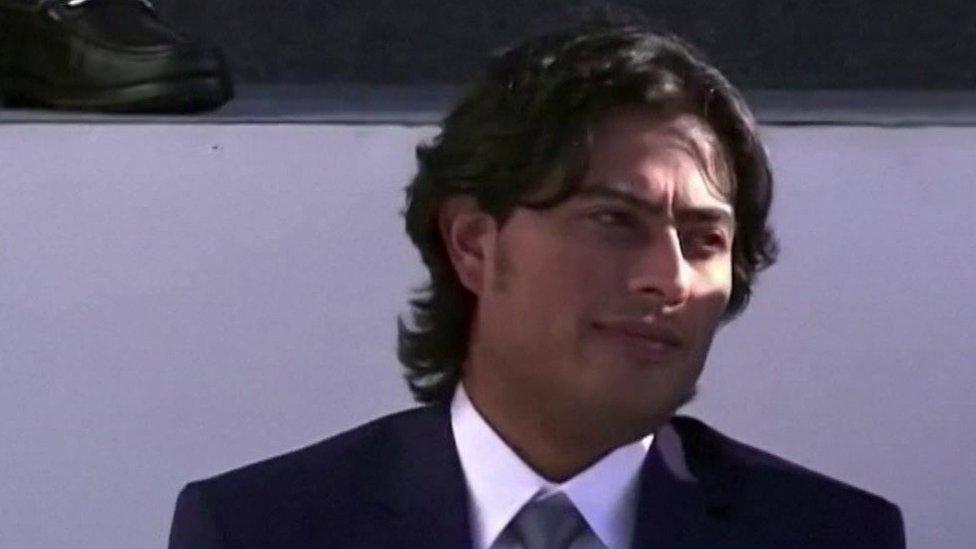Colombian president's son arrested in money laundering probe
- Published

Mr Petro was urged by his father to "reflect about his own errors"
The son of Colombian President Gustavo Petro has been arrested for money laundering and illicit enrichment by the country's attorney general.
Nicolas Petro, a politician in Atlantico province, was detained over allegations he was paid by drug traffickers to fund his father's peace efforts and election campaign.
He has denied the claims and welcomed the inquiry when it was launched.
The younger Mr Petro's ex-wife has also been arrested as part of the probe.
President Petro, the country's first left-wing leader, has denied taking money from Colombia's drug traffickers and ordered prosecutors to investigate his son in March.
Writing on social media on Saturday, external, he said it was painful for one of his children to be sent to prison, but also that he would not interfere with the investigation.
"To my son I wish luck and strength. May these occurrences forge his character and may he reflect about his own errors," Petro said.
The attorney general's office said the allegations against Nicolas related to illegal contributions diverted from his father's election campaign last year.
Nicolas and his former wife, Daysuris del Carmen Vásquez, are being transferred from the Caribbean coast to Colombia's capital Bogotá.
Ms Vásquez has previously alleged in local media that her former husband was given large amounts of money by drug cartels last year, during the political campaign that led to Gustavo Petro's victory in the presidential election.
Around 450,000 people are believed to have been killed as a result of 60 years of internal conflict in Colombia.
President Petro vowed to secure peace or surrender in deals with both Colombia's notorious armed rebel groups and drug cartels as part of his campaign - efforts which have seen intermittent success over his first year in office.
A negotiated ceasefire is set to begin with the National Liberation Army (ELN) guerrilla group in August, but talks with major crime gang the Clan del Golfo have failed because of ongoing violence.